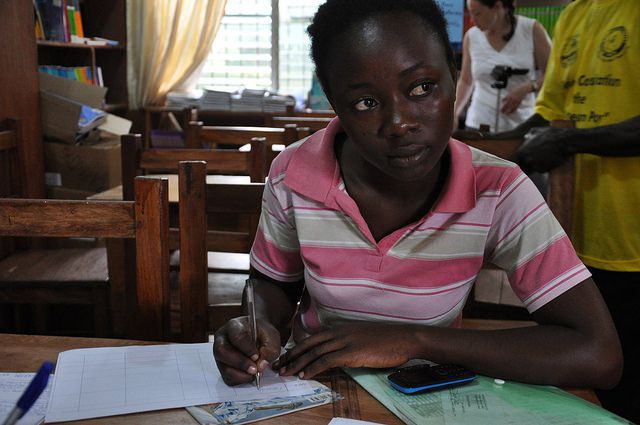“No struggle can ever succeed without women participating side by side with men.†– Muhammad Ali Jinnah
In Liberia, when a woman is placed in a position of prominence, her performance is used to judge the potential of all other women vying for the same position.
Most of the time, this technique is used to disqualify women based on the perceived poor performance of others. We treat men as individuals and women as a collective unit. We have become a society that sees women’s achievements as shocking or surprising but men’s as usual and penalizing women more for failures.
This cultural view is wrong in every sense. For a long time, women have been denied access and space to thrive. As a result, some women have accepted their role as being second to men and their achievements as unconventional.
But Liberia’s patriarchal system has overshadowed the role and abilities of women for a long time. Science Struck reports that “Patriarchy took firm root in society, and what is probably worse is that it blended so firmly in the mindsets of both men and women, that nobody thought there was anything wrong with it.â€
The low number of women’s participation in nearly everything when they indeed should be more is unfair and alarming. Women currently occupy only 15.8 percent of cabinet positions and only 10.7 percent of lawmakers are female. Beyond proven statistics, there are even lower representation of women in other sectors.
In an article published in 2016, we discussed the alternatives to the Affirmative Action Act, a bill aiming to increase women’s political participation. We argued that we need more grassroots actions and sustained efforts to ensure we do not only openly commit to giving women access, but we are encouraging them to take advantage and providing all the support necessary to ensure they do.
A study at Cornell University published in 2014 found that “men overestimate their abilities and performance, while women underestimate both.†The result proves a lot about why we see only a few women and girls getting involved even with their undeniable potentials to succeed. In 1978, Pauline Claunce and Suzanne Imes described this confidence challenge of ‘never enough’ and ‘not belonging’ as the ‘imposter syndrome.”
In our work with youth development programs and engagements over the past years, we realize that there is almost always low turnout of women in areas of the highest competition. However, in most cases, the few that participate prove equal and sometimes better than their male counterparts.
Unfortunately, from the results—women’s ascendency to the top or being finalists—reflect a vast gender disparity due to the initial low turnout. There is a need for more work to create spaces that encourage women’s participation. Additionally, it’s also important to directly engage with and provide them with the resources to step into the arena. Helping young women and girls build their self-esteem and confidence is crucial to bridging the gender gap.
Every new job post, scholarship, or career opportunity published nowadays is most likely tagged, “Women are highly encouraged to apply.†While this is a good way for institutions to openly commit and promote their passion for bridging the gender gap in these spaces, more actions are needed to ensure we have more young women and girls getting deeply involved.
During the summer, the African Leadership University launched the Mandela Centennial Scholarship to honor Nelson Mandela’s 100th birthday. During this period, 100 slots were available for applicants across Africa. Blessing had just been admitted into the university and was concerned about raising funds to cover tuition.
Even with the right profile and the ability, she doubted herself and lacked the confidence to take advantage of the opportunity. She only mustered the courage to apply when she realized that the 100 slots would be equally distributed to both genders. The application’s engagement process encouraged more females to apply and Blessing was subsequently listed as one of the 100 recipients of this scholarship.
In his book, The Competence Gap, author Russ Harris writes that it is evident that “women are less self-assured than men—and that to succeed, confidence matters as much as competence.†This is the way out. We must rethink how we engage women and girls to ensure their participation. We need to go beyond the decent policies, open commitments, and public announcements to actual engagement.
Men, as fathers, brothers, friends, and partners, must continually remind our young women of their amazing qualities and encourage them to take advantage of opportunities. If this means pushing them out of their comfort zone, then we must.
Recognizing their potentials and assuring them of their abilities is a huge step to enabling them to appreciate themselves and their abilities. If need be, like ALU, we must create systems that strongly encourage women’s participation. For every action, for every move, we will begin to see a significant impact in bridging this gender gap.
Featured photo courtesy of USAID
